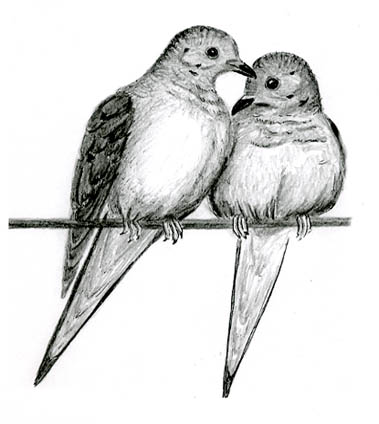
Throughout the year
we receive lots of bird questions. Some of the questions are answered in the newspaper, but most are not. We try to choose questions that are of interest to most of the readers or ones that haven’t been answered in the past year or so. And finally, and most importantly, we choose questions that we actually know the answers to. Writing “I don’t know” week after week, sure would save us lots of time, but I have the funny feeling that readership would start to drop off. We also stay away from questions that have short, easy answers. Since the paper pays me $500.00 per word, I’m not about to give quick answers.
With all that in mind, I thought it would be nice to wrap up the year by grouping some of the most commonly asked questions that we receive. Unfortunately, the people who wrote in and asked the questions won’t get their names in the paper, but they are probably better off that way.
How long do birds live?
I’m not sure why this question keeps coming up. Perhaps people like the idea of the same birds returning to their yard year after year. It’s nice to say “our hummingbirds are back” each spring, but in most cases the average life of a songbird isn’t more than a year or two at best. Even though the returning birds look identical to last year’s birds, they could also be ‘your’ bird’s offspring or just another similar bird setting up in a vacant territory. As for which bird has lived the longest in the wild, the last I checked an albatross was topping the charts at forty-two years. And the record for the bird that has lived the shortest amount of time is held by many birds, including the birds that were used to make your omelet this morning.
Do birds mate for life?
For some reason the concept of birds mating for life is comforting to some people. The romantics out there think that it’s absolutely dreamy that a bird couple will spend their entire life together. However, there are other people who are thinking “boring.” It turns out that birds are much like people in this matter. Some birds do mate for life, some mate for just one year and some birds can’t even make it through a single season without hooking up with a new partner. That’s called the Britney Spears Syndrome. And to make birds seem even more human, female birds of the same species actually sneak out and breed with a neighboring bird, while her old man is busy defending the territory. So I wouldn’t get too romantic about birds’ mating habits. Their breeding behavior would make Dr. Phil’s hair stand on end, if he had any.
If I start feeding birds will it harm them if I stop?
You would think that a crazy rumor such as this would have to come from a greedy seed sellers like myself. But I swear this silly idea didn’t come from me or any other of the seedy merchants that I know. In nature, food sources are constantly appearing and disappearing. Birds don’t allow themselves to become dependent on a single food source. In most cases birds have the ability to make whatever adjustments they need, just like people do. When Stop & Shop runs out of Fruit Loops, you don’t see people lying dead in the aisle; they simply go and shop some place else. Birds, too, know of alternative food sources.
When birds die, where do they go?
This question worried me for a while. I didn’t want to offend anyone who may have been hoping to discover that there was some kind of “bird heaven.” Then I realized the question was really about where do dead bird’s bodies go. It is a good question because birds are dropping dead all of the time, mostly from natural causes, yet our yards aren’t littered with feathery corpses. Most of the time dead birds are picked up by one of the members of the scavenger squad, any of the many mammals that like to make an easy meal from a dead critter. And if the mammals don’t get them, the insects and worms will. Nature wastes nothing. Heck, nature has even evolved some creatures to eat Brussels Sprouts, although most would rather scavenge a dead bird.
There you have the year end clean up of some odd or often asked questions. I wish I could have answered a few more. I didn’t even have room to answer the two of the most commonly asked questions: Why are there suddenly no birds at my feeders? The answer is: your yard is probably being visited by hawks. The other question is: How do I keep the woodpeckers from attacking my house? The answer is: I don’t know.